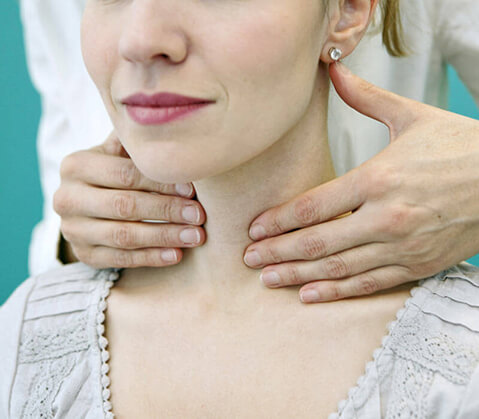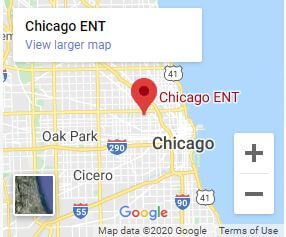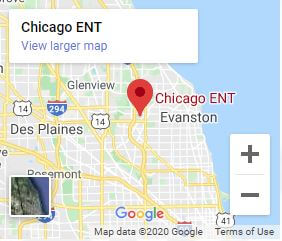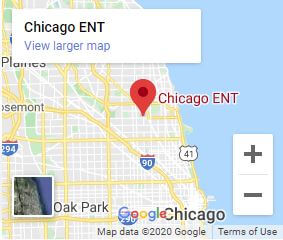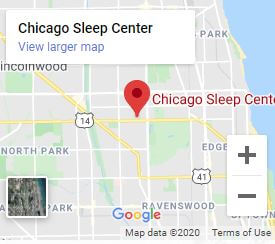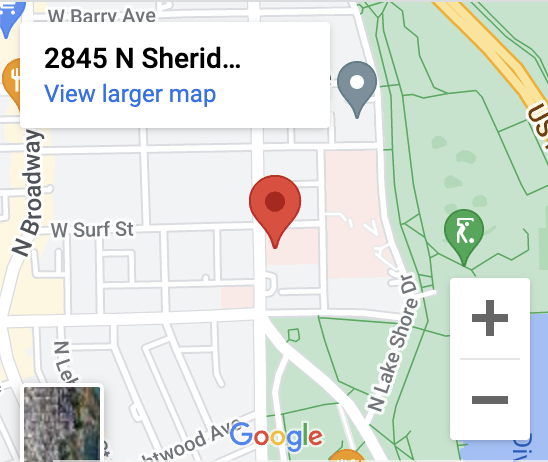The eustachian tube (named after Italian physician Bartolomeo Eustachio) is a small passage extending from the back of the nose to the middle ear. You have one for each ear. Its function is to regulate pressure between your ear and the external environment. Ideally, the pressure is balanced. The eustachian tube opens when you swallow or yawn in order to equalize pressure. The other function is to allow any fluid that has accumulated in the middle ear to drain into the back of the nose. At rest, it remains closed to prevent reflux (back-flow) from the nose into the middle ear space.
When there is a prolonged disruption in the pressure balance in the middle ear causing pain or discomfort, the first order of business is typically to check for malfunction of the eustachian tubes. “We often see a buildup of fluid due to blockage or partial blockage of the eustachian tube due to enlarged adenoids, explains Dr. Kathryn Colman, a pediatric otolaryngologist at Chicago ENT. “Upper respiratory tract infections, ear infection and chronic adenoid infection are the big three culprits that lead to problems in the middle ear.”
In infants and small children, the Eustachian tube can cause problems due to the immaturity of the cartilage. Oftentimes, it is too short, too flexible and in a more horizontal position to function normally. So, when babies are laying down, it is easy for there to be reflux of their nasal secretions into the middle ear, whereas in adults the tube sits at more of a 45-degree angle. This can lead to fluid buildup and possible infection in babies and toddlers.
Ear infections can be painful, and since they can occur before a child can talk, parents often wonder how they can tell if their child has an infection. The National Institutes of Health (NIH) offers these signs to look for.
- Tugging or pulling at the ear(s)
- Fussiness and crying
- Trouble sleeping
- Fever (especially in infants and younger children)
- Fluid draining from the ear
- Clumsiness or problems with balance
- Trouble hearing or responding to quiet sounds
A pediatrician will often refer to an ENT physician if a child has recurring ear infections defined as three such infections in a six-month period, of four within a year; or if they have chronic fluid in the ear. If the fluid is present for more than three months, they should be seen by a specialist, and ear tubes to prevent fluid build-up may be considered.
Eustachian tube disorders are not just seen in children but in adults, too. Dr. Samantha Dixon, an audiologist at Chicago ENT notes, “Usually a patient will complain of having a muffled hearing, or a feeling of pressure or water in the ear or clicking or popping. Popping means that your ear is trying to regain a balance of pressure. When there’s too much or too little popping, that could indicate a problem. If the ENT doctor suspects a pressure imbalance, the patient will usually be sent down the hall to the audiology team, especially if the patient reports reduced or impaired hearing.
“With both children and adults, an audiologist will perform a tympanometry test to assess the pressure in the middle ear space,” says Dr. Dixon. “We test to show if there is swelling, fluid, of pressure imbalance preventing sound waves from transmitting through the middle ear. We also do a bone conduction test to assess the hearing nerve. Our audiology team works in conjunction with the ENT doctors to assess any structural or nerve disorders that might be going on with a patient, and together we create a treatment plan to restore normal hearing or mitigate any hearing damage.
“It’s really a team approach that we use here at Chicago ENT. The bigger and fuller your toolbox, the more you have to draw from to help the patient.”
To schedule an appointment, call 773-296-5500 or book online.





